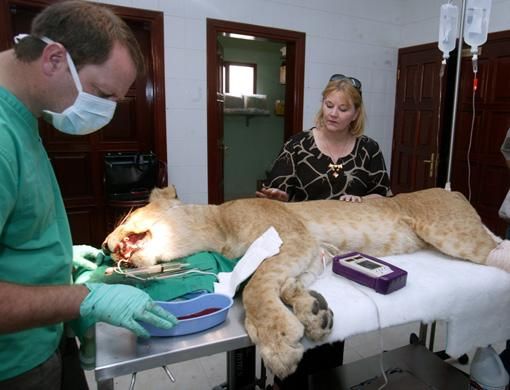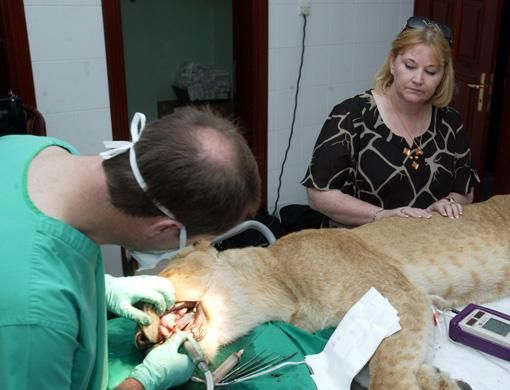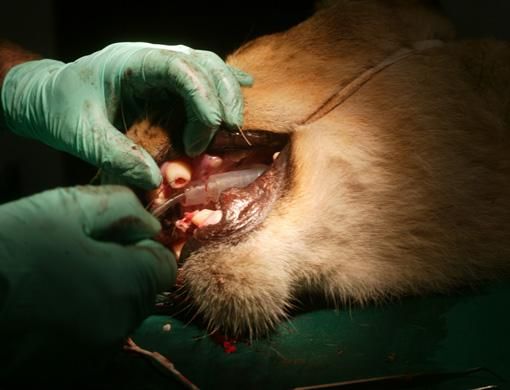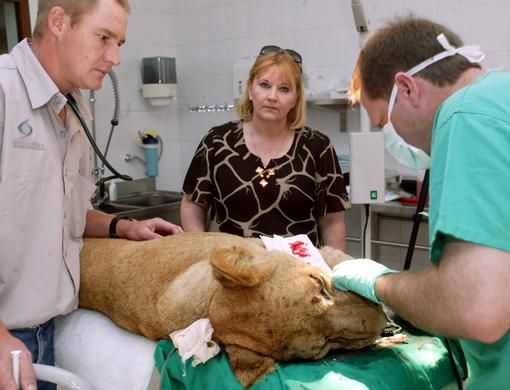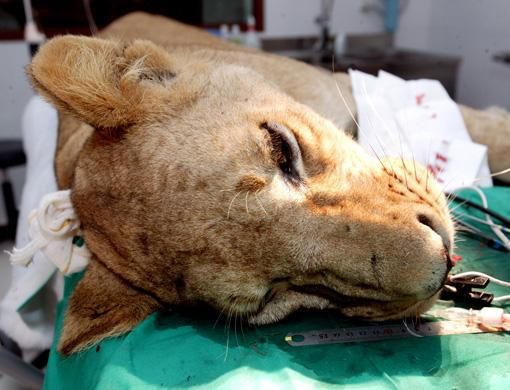Abu Dhabi: A lioness paid a visit to the dentist on Wednesday for root canal treatment.
The eight-hour operation on the two-year-old African Lioness was performed at the Abu Dhabi Wildlife Centre (ADWC) by a team of South African vets.
Nearly half of her teeth, 14 out of a total of 30 were extracted, four were operated on and root canal work carried out. None of her teeth will be replaced.
Gulf News was asked to pick out a name for the 100 kilogram lioness and called her Roots.
"We don't usually replace the extracted teeth. She won't need them anyway, because we are mostly extracting the front teeth. She can still eat using her back teeth. She will not be able to protect herself using her teeth if ever attacked by another animal, but she still has her claws. These animals are physically strong by nature," said Dr Gerhard Steenkamp, veterinary dentistry and oral surgery referrals, University of Pretoria.
The procedure started when Roots was darted at 9.10am to give her full anaesthesia; the surgery took place at 9.45am.
Dr Steenkamp came from South Africa especially to perform the operation on Roots. He has previously carried out root canal surgery on 20 lions and 70 cheetahs in South Africa.
Assisting him during the surgery was Dr JW Eksteen, a veterinary surgeon from South Africa.
During the operation Eksteen told Gulf News Roots was doing well, and even though knocked out from the anaesthetic was not in a deep sleep.
"Anaesthesia stays in the blood for roughly one hour. If the animal wakes up the heart rate goes up, so we top up to stabilise the blood level," said Eksteen.
Roots was rescued and transported to ADWC two months ago along with her companion, Zulu, who was placed with Roots in the same area.
Devotion
When Roots was transferred to ADWC a general check-up on her was carried out and via X-rays doctors managed to perceive how deep the abscess in her mouth was.
"After the operation, Roots will need to be isolated for a good 24 hours. As soon as she manages to recover from the anaesthetic we will place her back with Zulu. Until then she will be given antibiotics, painkillers and fed soft food. She will be closely monitored until she's fully fit," said Ronel Smuts, manager, ADWC.
According to Smuts, Roots is expected to grow a further 80 kilograms and will weigh about 180 kilograms once fully grown.
"We could not have done this without consolidated teamwork from both Dr Eksteen and Dr Steenkamp; the wildlife vets; the manager for World Life Trust who helped transport Roots and bring the South African vets to the centre; Dr Andrew who lent ADWC his X-ray equipment and Khaldoun Kiwan of the Environment Agency who sponsored and covered the expenses for Roots' surgery. I would like to thank all of them for their support and devotion to help Roots' life," said Smuts.


